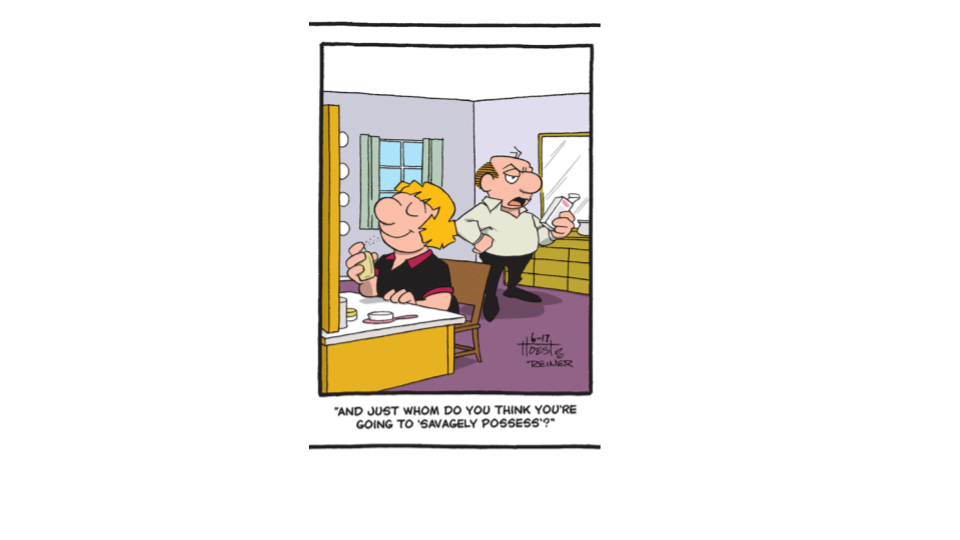Look at the sentence in the last panel, courtesy of Rabbits Against Magic. Doesn’t feel quite right, does it?
That first preposition isn’t right somehow. Maybe I see a suggested contradiction between “in the opposite direction” and “to the White House.”
“Opposite” can stand by itself just fine:
They’re moving opposite the direction to the White House.
Or maybe something even simpler:
They’re moving away from the White House.
How would you smooth out that sentence?


